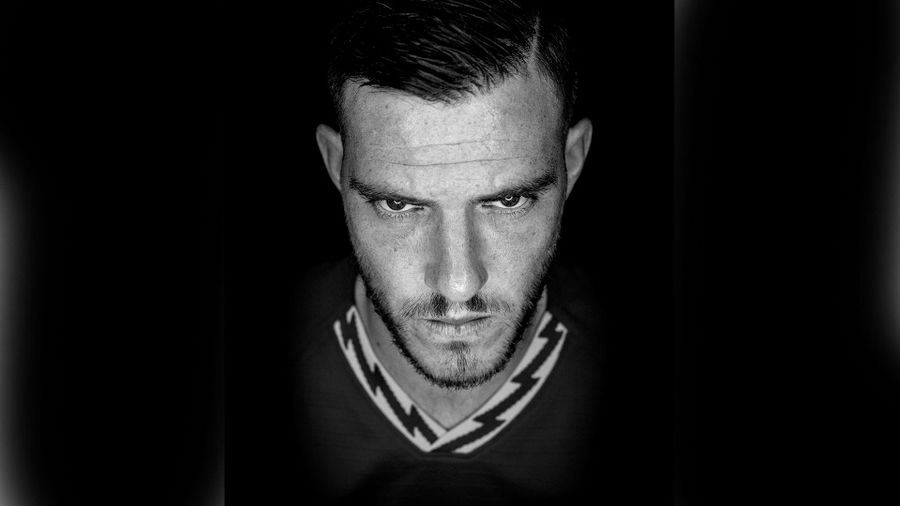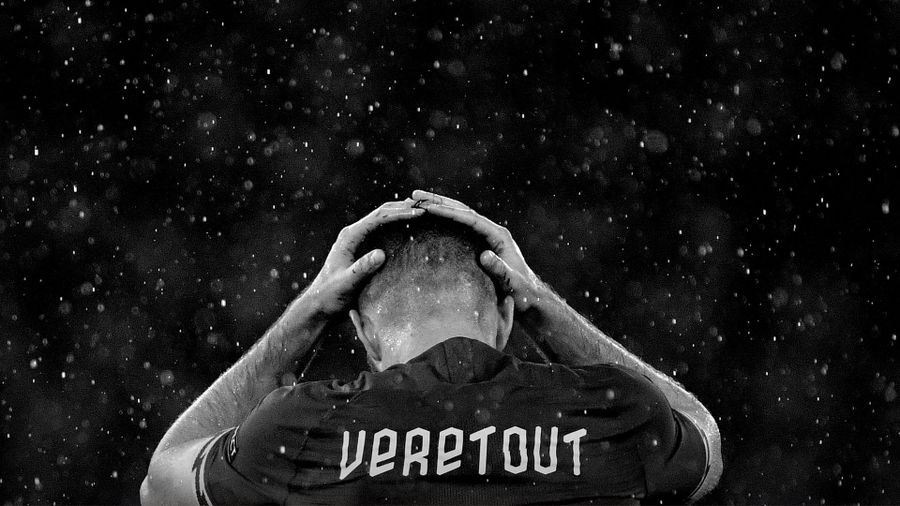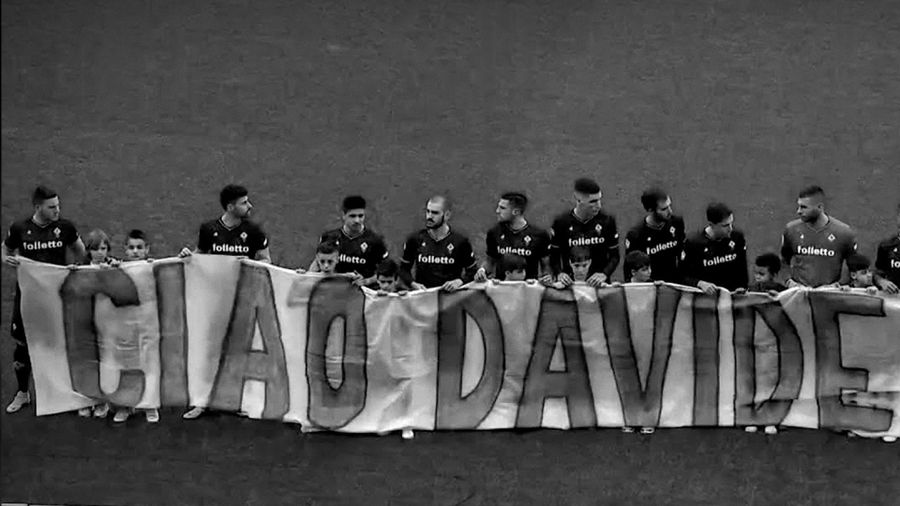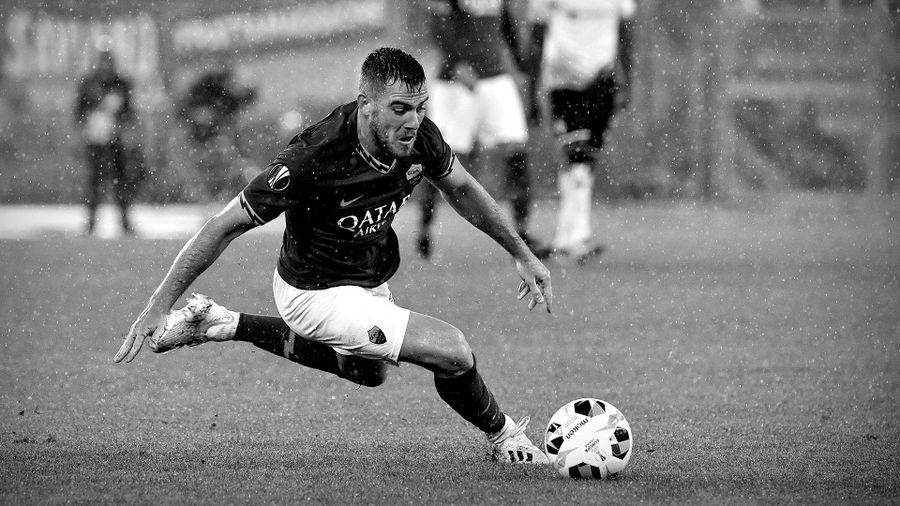

Since making the decision to come to the Italian capital last summer, Jordan Veretout has established himself as a reliable element within coach Paulo Fonseca's midfield.
In our latest wide-ranging interview, the French midfielder talks us through his start to life with the Giallorossi - along with the other stops in a career that has already seen him play in three of Europe's top leagues...
What were you like as a child?
“I was a calm boy. I loved football and used to play by myself at home. My parents gave me a ball as soon as I started walking and I immediately started kicking it around. I’d play in the bedroom and the lounge and sometimes I broke things.
"I lived in a small village where everyone knew everyone else. In the afternoon I’d play with my friends and I’d always go home dirty. I only liked football when I was a boy but now I watch all sports: tennis, basketball, volleyball…”
How old were you when you first joined a football team?
“I was five and it was with my village team. Then I joined Nantes when I was 10. My village is between Nantes and Angers and both cities have top-level teams. My parents asked me which one I preferred and I chose Nantes because they were my boyhood club – I had Nantes posters all over my bedroom walls.
"I used to watch Ligue 1 matches on Saturday night but I couldn’t watch the games on Sunday night because I had school on Monday morning. I remember when Nantes won the league in 2001. I was eight and I was at the stadium when they clinched the title against Saint-Etienne. The celebrations were amazing.”
Who was your boyhood idol?
“I liked all the Nantes players but especially Marama Vahirua – I used to love his paddle celebration. I liked Stephane Ziani too and he later became my coach. Eric Carriere as well. When I was a bit older I liked Xavi, Andres Iniesta and Cesc Fabregas.”
How old were you when you made your senior debut for Nantes?
“I was 18 and it was in Ligue 2. The coach was Landry Chauvin. He was really good at helping young players and would give them a chance. He was a massive help to me and probably played me when I sometimes didn’t deserve to. He really believed in me.
"Another coach who played a big part in my development was Michel Der Zakarian. He had a different approach and focused heavily on the defensive side of the game. Before him, I only used to think about playing in the opposition half, but football is about covering too. After three years with him I became a much better all-round player. We got promoted back up to the top flight with him.”
You seem to be very fond of all your coaches…
“Yes, they all helped me. From Ziani, who helped me get into the first team, through to Remi Garde during my time at Aston Villa and Christophe Galtier when I went to Saint-Etienne. Galtier was very good at talking to the team and managing the group. I owe Stefano Pioli a lot too. He cottoned on to my game instantly, and I understood how he wanted the team to play. He also helped me understand Italian culture and how it’s different to French culture.”
Nearly all the top French players end up playing abroad. How does that affect your thinking as a young player growing up?
“There are good teams you can aspire to play for in France too. Personally I moved abroad because I wanted to experience different cultures. I don’t think you should leave when you’re too young – you have to be ready – but I think you can improve more quickly by playing in other countries.”
What do you remember about winning the U-20 World Cup?
“2013 was a fantastic year for me because Nantes got promoted to Ligue 1 and then I played at the U-20 World Cup in Turkey. We had an amazing team. We set out with the aim of winning the tournament and we did. We had Paul Pogba, Geoffrey Kondogbia, Alphonse Areola, Kurt Zouma, Samuel Umtiti, Lucas Digne, Florian Thauvin... We won that tournament on the pitch but we nurtured our success off it too. We spent almost two months together and formed a great bond. That unity, besides our belief in our ability, was our strength.”
Your year in the Premier League didn’t go very well for the team but what was it like on a personal level?
“It was a bad year for Aston Villa because we got relegated but it was a good experience for me. I played a lot, got to know a different country, a different league and a different culture.
“There were some negatives too, though. When I was at Nantes, I had my whole family with me. I went to England with just my wife and our two-week old daughter. It was a sink or swim moment. We lost lots of games and it was tough going home after a defeat. The weather was nearly always bad in Birmingham too and my wife didn’t settle there, so at the end of the season I decided to go back to France and Saint-Etienne. I enjoyed my year there but I wanted another experience abroad and try to avoid some of the mistakes I had made in my previous experience. Fiorentina were interested in me and I thought it was a good opportunity. It was because I love it in Italy!”
You had two good seasons in Florence football-wise but there was also the sudden loss of Davide Astori. How do you get going again as a team after a tragedy like that?
“The first week was hard. Davide had a great personality and he was the captain. When I first came to Italy I didn’t speak the language and he helped me loads.
“We motivated each other to get going again by saying that he was a warrior on the pitch and we needed to be like him. We won one, two, three, four, five, six consecutive matches. Life went on but he’s still with us. I often think about him even now. We have to live for him. If I give everything on the pitch, it’s partly because he was such an inspirational captain – grit and determination in training and in games.
“I have a photo at home of the first match we played without him, against Benevento, when all of us players were on the ground at the final whistle overcome with emotion.”
Then you joined Roma last summer. What’s it like working with Paulo Fonseca?
“I love it. The first time he called me he convinced me how much he wanted me and I’m glad I joined Roma – a great club with great fans and a great coach like him. He’s already improved me and I can only get better with him.”
The fans remember the first thing you did was help set up Edin Dzeko’s winner against Bologna…
“Yeah, that was a nice move but it wasn’t just me – it was a team move.”
You then scored your Serie A first goal for the club against Napoli from the penalty spot. What was that like?
“Very intense. It’s an amazing feeling to score at the Stadio Olimpico in front of the Roma fans and to do it against a great team is even better. I remember when Edin handed me the ball for the penalty I looked at [Aleksandar] Kolarov because he was the penalty-taker. He’d missed one in the first half and he said, ‘Go on Jordan!’ A thousand thoughts raced through my head before I took it but then it went in!”
How are you spending your time now that football and pretty much everything else is on hold?
“I have more time to spend with my family. I like being at home with them because I spend the whole year travelling about for football. One positive about this situation is I get to spend more time with them. Obviously I hope it all finishes as quickly as possible, that we can start playing again and that there’s no more danger, but I’m trying to enjoy this chance I have to be with the family.”
What do you miss most about normal life?
“I miss playing football because that’s what I love most and have always done. My family and football are my life. When I don’t have one of the two it’s hard. I really miss going to the training ground, chatting with my team-mates and playing football. My family in France are in the same situation now. They’re all fine but like us they can’t go out. I tell them all to stay at home as much as possible because going out is dangerous. Thankfully they’re all ok.”
Have you seen what Roma Cares has been doing?
“Yes and I’m very proud of my club. They’ve done some great things for Rome and the Roman people. We’re all proud of Roma.”
Do you find it difficult to train on your own?
“Yes, very, but we have no choice. I hope the situation improves soon because it’s not easy training by yourself. One week or so is ok but after two or three weeks it gets hard. It helps that the coaching staff send us training schedules every day. I sometimes do the work in the morning and sometimes in the afternoon. It depends. I have a treadmill and other equipment that we’ve been provided with.”
What about your diet? How is that organised?
“Out nutritionist Guido Rillo sends us weekly plans so that we don’t put on weight. We have to weigh ourselves every day and keep him updated. The club, coaches and medical staff follow us every day, asking how our day has been and how training went. They’re right by our side.”
As a footballer, what’s it like to think that football has come to a standstill across the globe?
“It’s strange. On the one hand, it shows you how serious this situation is; on the other, it changes your daily life even at home. I normally watch matches all the time but now there are no games anywhere in the world.”
What do you do with your time when you’re not watching football?
“I’m watching even more TV series at the moment. I’ve been watching Validé recently, a French series about a young guy trying to make it in the music business, with all the difficulties that entails. I know what it’s like when you’re trying to make a career for yourself in football and I think it’s interesting to see what it’s like in music. Other series I like are Peaky Blinders, Game of Thrones, Power and Gomorrah.”
What about video games?
“Sometimes I play FIFA with my French friends but I don’t play that much. We do different leagues. In Serie A I obviously always choose Roma.”
Do you think you’ll go back to France in the future or when you retire?
“I’m very happy in Italy – I really like it here. Going back to France is not a priority of mine for now. I hope to stay in Rome as long as possible because I’d love to win something here. That would be greatest thing.”
Check out earlier entries in our Big Interview series:
AS Roma x Elisa Bartoli
AS Roma x Betty Bavagnoli
AS Roma x Chris Smalling
AS Roma x Edin Dzeko
AS Roma x Gianluca Mancini
AS Roma x Aleksandar Kolarov
AS Roma x Nicolo Zaniolo
AS Roma x Jim Pallotta
AS Roma x Cengiz Under
AS Roma x Paulo Fonseca
AS Roma x Leonardo Spinazzola

 Tickets
Tickets
 Shop
Shop





































